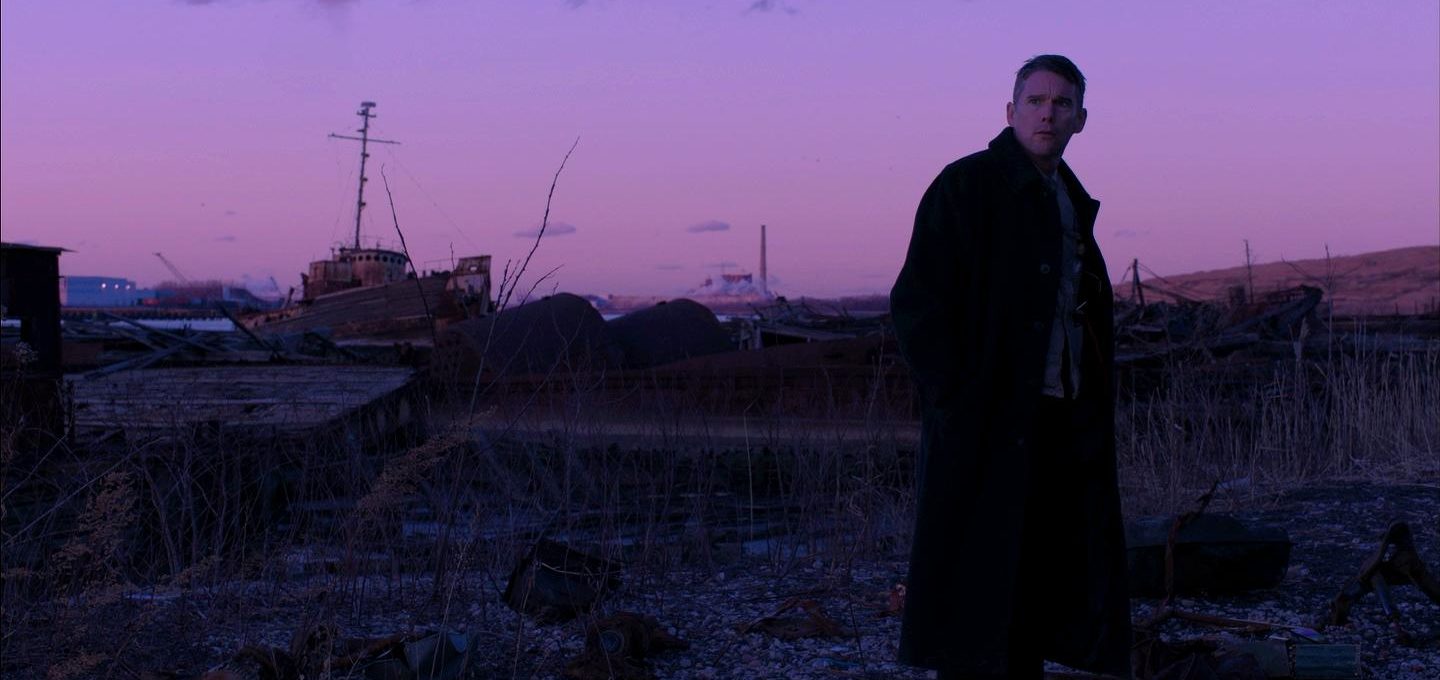Portraying ministers in film is a daunting task. Make them too pious and they are foreign to a large audience. Make them “too human,” and you risk offending viewers that hold ministers in high regard. The classics in the genre, Diary of a Country Priest, Ordet, and The Trial of Joan of Arc, could now be joined by Paul Schrader’s First Reformed.
Reverend Toller (Ethan Hawke) pastors First Reformed Church in upstate New York, which now functions as a ministry branch of a nearby megachurch pastored by a more charismatic minister played by Cedric Kyles, a.k.a. Cedric the Entertainer. The teens at the megachurch jokingly refer to First Reformed as the “Souvenir Shop.” A 250-year-old chapel build in the Dutch Colonial style, it pales in comparison to its flashier counterpart, and while thousands flock to the megachurch, Rev. Toller would be lucky to see a dozen worshippers at a Sunday service
Rev. Toller is divorced, his marriage could not survive the death of their child, which he blames on himself. He undertakes a “task,” hand writing a journal every day for a year where he reflects on faith and ministry. A “challenge” presents itself with the arrival of a young pregnant woman named Mary (Amanda Seyfried) and her troubled husband Michael (Philip Ettinger). Mary is worried about Michael, a passionate ecologist, who is depressed over the global environmental crisis and the state of the world in which he and Mary will bring their daughter. Mary asks Rev. Toller to counsel Michael. This experience tests his faith and puts him at odds with his broader religious community. I won’t say more to avoid spoilers, but the final few minutes of the film are likely to leave viewers breathless.
Such a riveting narrative isn’t often a hallmark of transcendental cinema, a style that Schrader coined in his grad school thesis, which was subsequently published by University of California Press. It will be re-released in June with a new introduction, right around the theatrical release of First Reformed. For the first time in his career, Schrader set out to make an intentionally spiritual, transcendent film, but one that would appeal (potentially) to a wider, more commercial audience. To a large extent, he succeeds. The film has all the thematic hallmarks of the transcendental style and the accompanying aesthetic features of slow, limited camera movement, dramatic angles, and a hauntingly beautiful score. But it’s the film’s performances that will likely draw in that wider audience.
Hawke is at that perfect age, with a face lined by age, but not old. His fear, angst, regret, belief, and doubt all war across his features with equal strength. There’s still a potential future ahead of Rev. Toller, which he rejects. And in the surprising performance of the film, Cedric Kyles plays one of the more convincing and sympathetic megachurch pastors of recent memory. He delivers a performance that captures, more effectively than most, the day-to-day pressures and realities of leading a church, especially one with a racially and financially diverse membership. One of his members, Edward Balq (Michael Gaston), is a wealthy businessman, whose company is responsible for a wave of pollution in the local environment. When Rev. Toller confronts Balq about creation care, Balq pushes back. While Kyle’s character doesn’t necessarily take Balq’s side, he doesn’t stand up for Rev. Toller either.
Underlying the spiritual strengths of First Reformed are deeply human elements. The film does what so many others in the genre fail to do, portraying the unseen, thankless jobs that many ministers perform in the life of their church, including plumber, tour guide, and lawn maintenance. On the more serious side, it also shows ministers’ daily fears and regrets and the constant questioning of whether or not they said the right words in a sermon or private counseling session with a congregant.
First Reformed played in the Festival Favorites section here at SXSW.
